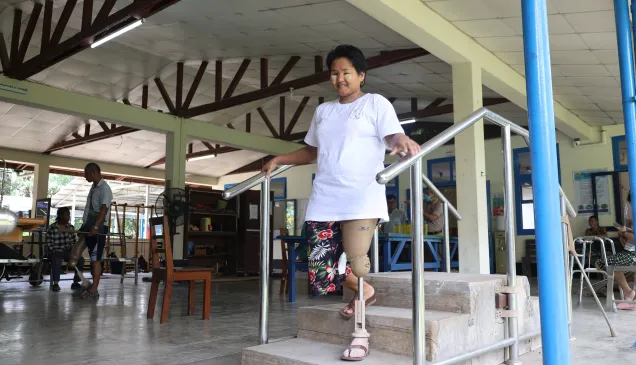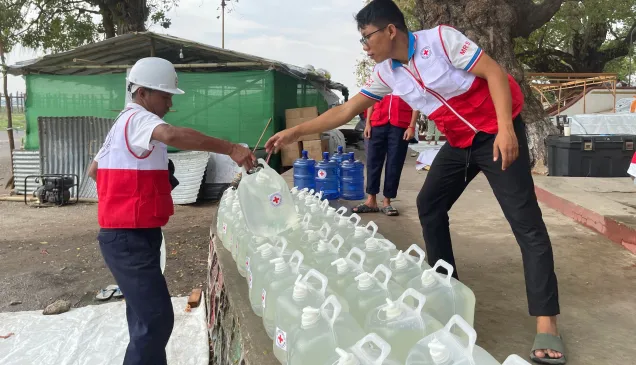Myanmar: Restoring hope to families of the missing
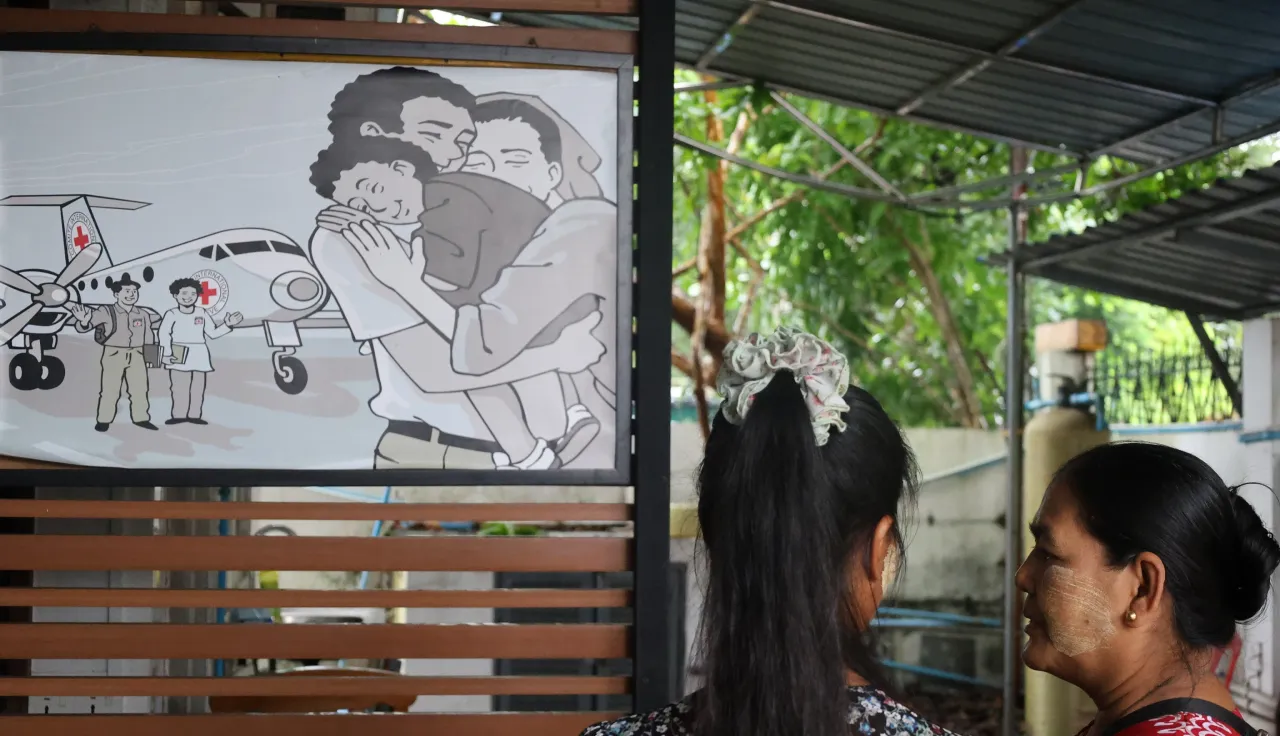
Each year on 30 August, the International Day of the Disappeared honours the countless people who have gone missing through conflict, migration and natural disasters — and the families who face the anguish of not knowing their fate.
By the end of 2024, more than 284,000 people from all over the world were registered as missing with the Family Links Network. This is only a fraction of the true number. Behind every case is a family living in uncertainty, coping not only with emotional pain but often with economic, legal, and social challenges that can last for decades.
In Myanmar, the combined impacts of armed conflict, displacement, and natural disasters have left many families without news for years. In 2024 alone, the ICRC helped the families of 419 individuals to clarify the fate or whereabouts of their loved ones. This work is carried out in close partnership with the Myanmar Red Cross Society, ensuring that families receive answers and, whenever possible, are reunited.
Hear from Ene Abah, who shares her personal experience after working in Myanmar to restore family links.
“Testimonials like these reassure me that our work indeed makes a difference.”
I started my assignment in April 2023 and arrived in Yangon in May 2023. It is now just shy of two years since I arrived, and reflecting on my time here, there is a lot to say. My mission has been anything but straightforward in this beautiful country that boomed with tourism not so long ago. With the intensification of the conflict in Myanmar since late 2023 and the resulting humanitarian consequences, many families have lost contact with a loved one. Protection of Family Links (PFL) is a part of the Protection work we do at the ICRC. The goal is to provide answers to family members separated from their loved ones due to conflict, detention, migration or natural disaster. Our work helps us find missing persons, and then we share the news with family members. When we are able, we reunite families with missing loved ones, especially children. The part of reunification is always a joy to behold and to be part of.
Although we are unable to search for people as we would normally do in Myanmar, due to limited access to many areas, we find ways to contribute to restoring hope for families. One of our many stories from Myanmar was featured: Myanmar: One priceless phone call keeps hope alive, and also highlighted as part of the Forgotten Crisis series in Australia: Myanmar: A Story of a Mother Revealing the Significance of Family Connections.
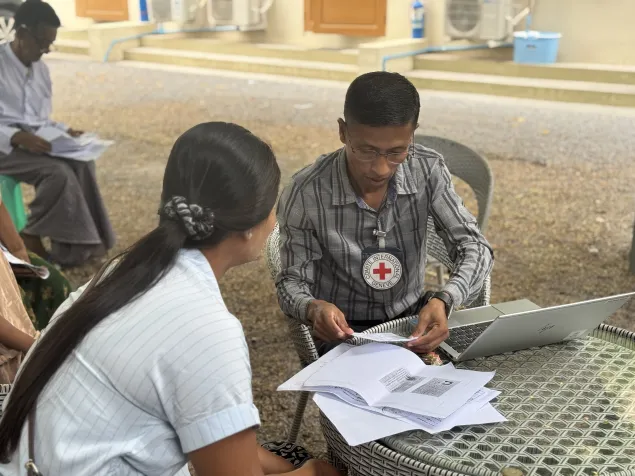
Family Visit Program beneficiaries in Mandalay
I have been fortunate to carry out house visits to deliver news to some families here. One that struck me was a family who were unaware of the whereabouts of their loved one for two years.
We had driven for over two hours to Khayan township in Yangon region, through areas I had not seen before. The buzz of Yangon city was far less around this area. We had a vague address as house numbers were not exactly precise. As we do when searching for people, we stopped a few times to ask for directions and if anyone knew the family we were looking for. The reputation of the ICRC precedes us and people were eager to help us find them, even without knowing why we were looking for the family.
We had called the family to notify them of our arrival, so they sent someone to the road junction to wait for us. He led us but the car could only go so far. We walked the rest of the way, but not for long. By this time, the family had come out to greet us and we all walked to their house together. The house, located in a swampy area, was made of wooden floorboards and bamboo sticks then held up by stilts.
The family had limited information on the ICRC, so we carried out a dissemination session on our activities. We got to the part of restoring family links and explained that it was the reason for our visit. We provided a name, asking the family if they knew him and as his name was mentioned, you could see the anxiety on their faces. One of the family members was eager and nudged us to get to the point. We would later find out that she was his sister. When we mentioned that we had news from him, the anxious family was overjoyed to hear that their brother was alive. His sister burst into tears when the team mentioned he had some news. She later told us in relief that when we called his name, her first thought was that the worst had happened, and he was no longer alive. The lack of news from family members takes an emotional toll on those waiting, and it is palpable for the team when we meet with families.
In another instance, a volunteer we worked with, who ended up being a beneficiary of our activities, fled from fighting in his town with his family. They only had the clothes on their backs. At the time I was speaking to him, he had fled for the fifth time and was planning to leave again, as there were rumours of possible attacks on the current village where they were. But in his words,
I love the work we do of restoring family links as I see the joy it brings to people to hear of their loved ones. I can’t imagine how my life would be without my family with me through this difficult time.
We meet many families like these ones, and testimonials like these reassure me that our work indeed makes a difference.
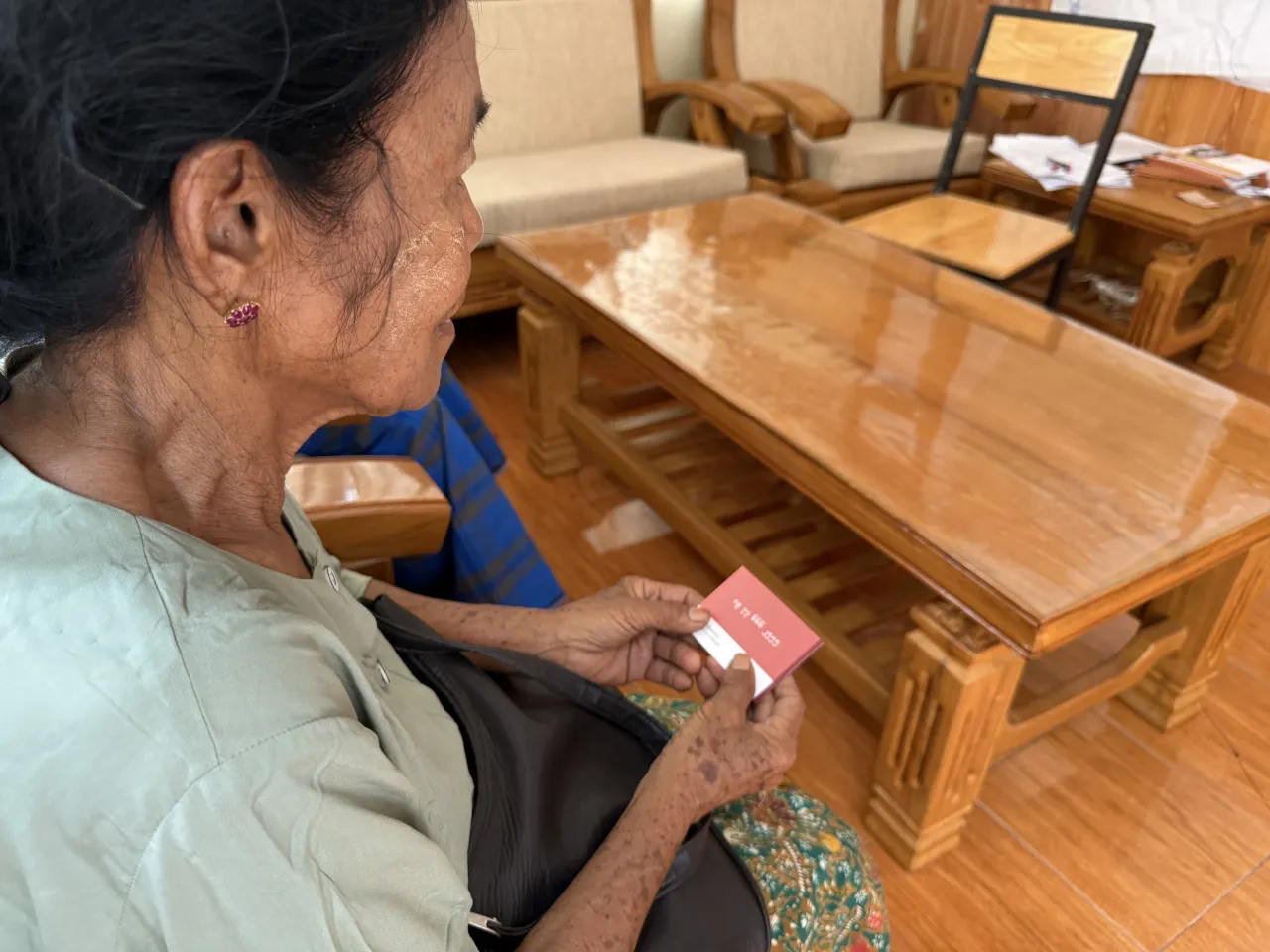
Family Visit Program Assistance in Mandalay
A result of our meeting with some of these families is their finding out about our Family Visit Programme and thus coming by the office for support. One family kept expressing profuse thanks to the ICRC, as they had not seen their detained family member in 10 years. The ICRC provides support towards transport and travel costs to enable families to visit their detained loved ones around the country. Similarly, when detained persons are released from detention, we provide support with transport costs to help them return home to their loved ones. All these programmes fall within the framework of our protection of family links programme.
Maya Angelou’s words come to mind: “I've learned that people will forget what you said, people will forget what you did, but people will never forget how you made them feel.” We may not always have immediate responses to the people we receive at our offices, but a listening ear is sometimes all they need. And we have been told how appreciative many affected people are of our ability to be there for them in their moments of anguish.
Beyond the conflict, Myanmar is prone to natural disasters. I was here when Cyclone Mocha made landfall in 2023. I witnessed the flooding caused by Typhoon Yagi during the monsoon season in 2024, and finally, the earthquake in 2025. All these compounds already exist, leading to more food shortages, health and shelter needs. The current estimate of displaced persons by the UN stands at a staggering number of 3 million persons. As I walk on the streets, it is impressive to see how some cultural practices have been maintained, like the preference of dressing in the colourful local attire called the longhi. Resilience and strength have consistently been shown by the people of Myanmar, and I wish for them that things get better. I am greeted with smiles and reminded of a country so beautiful, yet heavily affected by conflict. The humanitarian aid the ICRC provides might be a few drops in the ocean in the grand scheme of things, but it makes a difference regardless.


